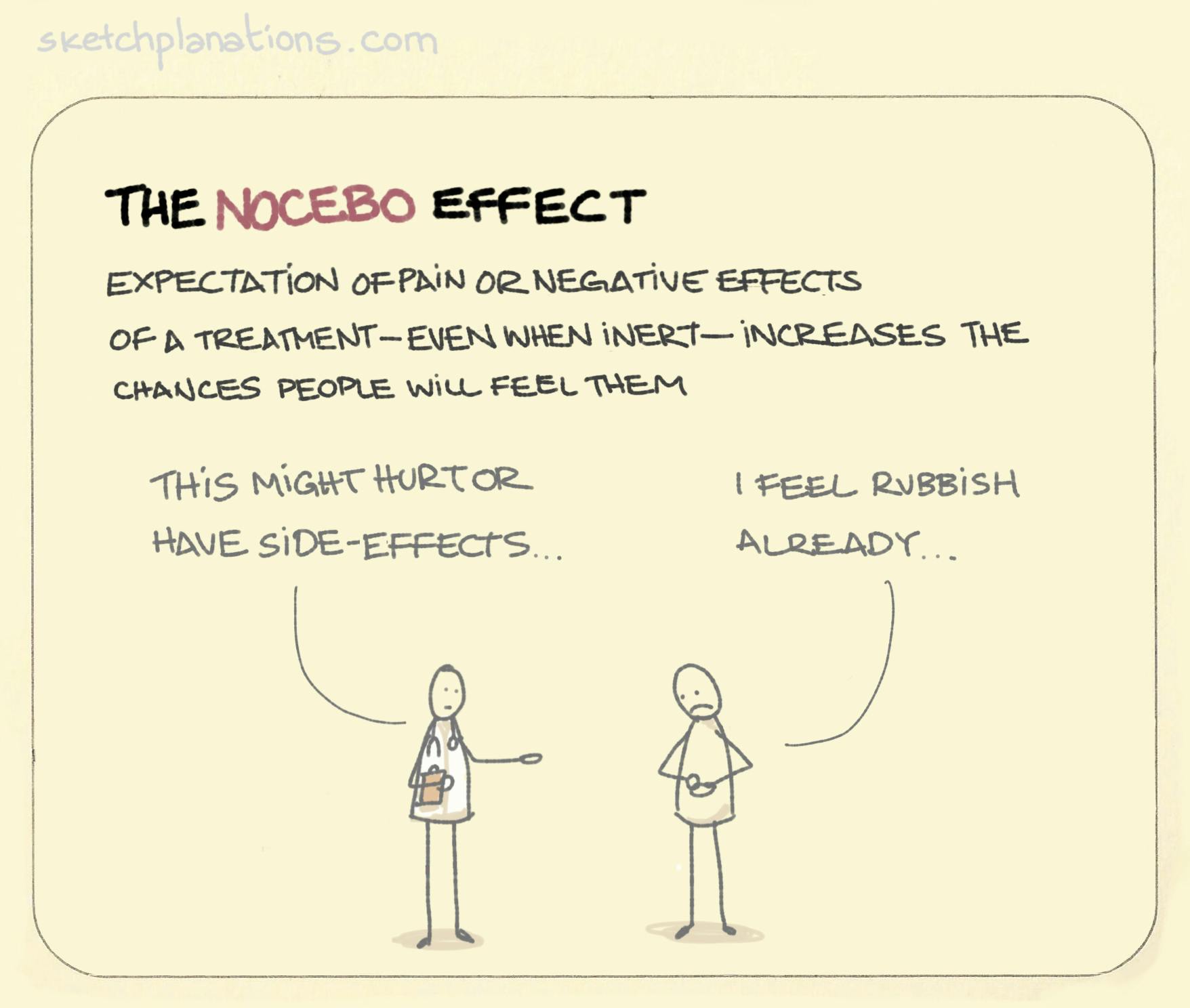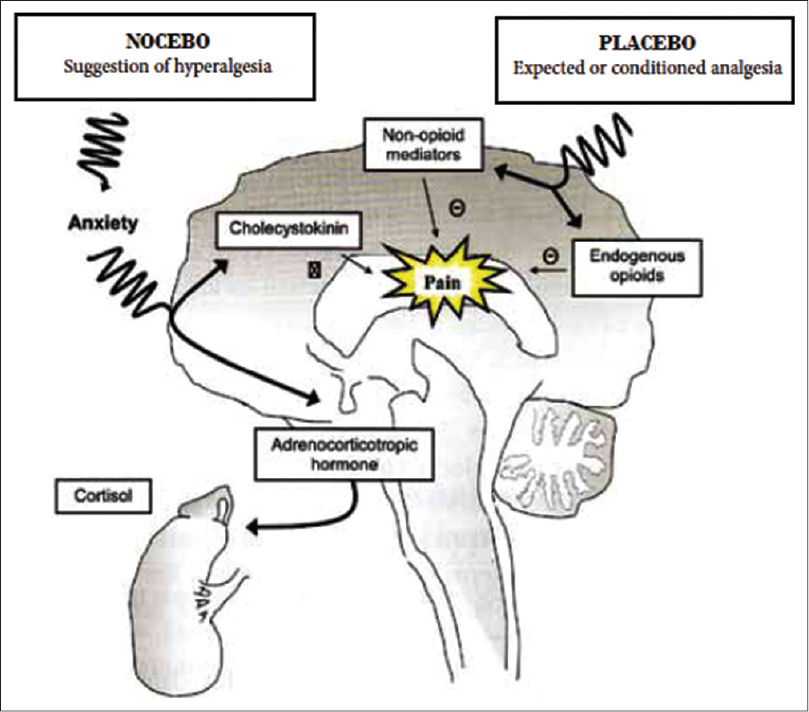Have you ever experienced the power of negative thinking? While the placebo effect is well-known for its ability to make people believe their medication is working due to positive thoughts, the opposite effect, known as the nocebo effect, can have detrimental impacts on health.
According to Charlotte Blease, a health researcher at Uppsala University, Sweden, and co-author of “The Nocebo Effect: When Words Make You Sick,” negative expectations can lead to negative health outcomes, amplifying symptoms such as pain, anxiety, nausea, and fatigue.
Blease shared an example of her own experience on a bus trip in Ireland, where being told she looked unwell triggered feelings of motion sickness, highlighting the powerful influence of negative thinking on physical sensations.
Nocebo: Not placebo
In medical trials, the placebo effect is a well-known phenomenon where patients experience symptom relief even when given inactive treatments, simply because they believe they are receiving effective medication.
Conversely, the nocebo effect operates as its negative counterpart, exerting adverse effects on individuals due to negative expectations.
In a hypothetical scenario where one group receives genuine headache medication and another group receives sugar pills, those in the latter group may still report symptom relief, attributed to the placebo effect.
 However, the emergence of symptoms or worsening of conditions in individuals anticipating negative outcomes represents instances of the nocebo effect.
However, the emergence of symptoms or worsening of conditions in individuals anticipating negative outcomes represents instances of the nocebo effect.
The lesser-known nocebo effect, derived from the Latin term for “I will harm,” describes a decrease in treatment effectiveness or worsening of symptoms due to the anticipation or belief that the treatment will cause harm.
In studies, negative expectations about treatment completely nullified the pain-relieving effects of opioids.
It’s been suggested that a considerable portion of medication side effects can be attributed to the nocebo effect.
One explanation for how nocebo-induced symptoms arise is that patients become more aware or sensitive to normal day-to-day symptoms, attributing them to the treatment as adverse effects.
Additionally, fluctuations in disease symptoms or natural variations can be mistakenly linked to treatment changes.
How doctors deal with the nocebo effect
Navigating conversations with patients while avoiding triggering the nocebo effect poses a significant challenge for healthcare professionals.
 According to Blease, physicians are tasked with the duty of avoiding harm to patients and minimizing any potential harm, while also maintaining honesty in their communications.
According to Blease, physicians are tasked with the duty of avoiding harm to patients and minimizing any potential harm, while also maintaining honesty in their communications.
Hoffman suggests that in the context of vaccines with relatively minor side effects, directly addressing the nocebo effect could be beneficial.
Instead of concealing or downplaying symptoms, physicians could acknowledge the phenomenon and reassure patients that experiencing these effects does not necessarily indicate any danger.
Importance of Communication
Experts in the field emphasize the critical role of doctor-patient communication in mitigating the occurrence of nocebo effects.
In the context of vaccines, doctors are obligated to inform patients about potential side effects.
However, rather than listing side effects in a manner that may instill fear, reframing them as indicators of a well-functioning immune system. This approach aims to reduce negative expectations among patients, potentially resulting in fewer or less severe side effects.
The therapeutic encounter, encompassing clinician interaction, verbal and non-verbal communication, as well as the clinic environment, plays a crucial role in shaping treatment outcomes.
 For instance, presenting a potential adverse effect as “This medicine can cause headaches” versus “Most individuals experience no issues with this medicine, but a few may have mild headaches” can significantly influence patient expectations.
For instance, presenting a potential adverse effect as “This medicine can cause headaches” versus “Most individuals experience no issues with this medicine, but a few may have mild headaches” can significantly influence patient expectations.
The overall healthcare experience, from reception to the waiting room ambiance and staff demeanor, also affects patient perceptions of treatment, thereby influencing their response.
Nocebo effect: A past remnant?
During a nocebo effect, the body’s pain regulation mechanisms are disrupted, resulting in heightened pain perception.
There have been speculations that human evolution offer some insights, suggesting that negative expectations could have served as a survival mechanism in the past.
In ancestral times, being prepared for potential dangers, such as encountering wild animals or poisonous plants, was crucial for survival.
Charlotte Blease echoes this sentiment, suggesting that the nocebo effect might be a remnant of our evolutionary past, although it may not align with the realities of modern medical practices.











